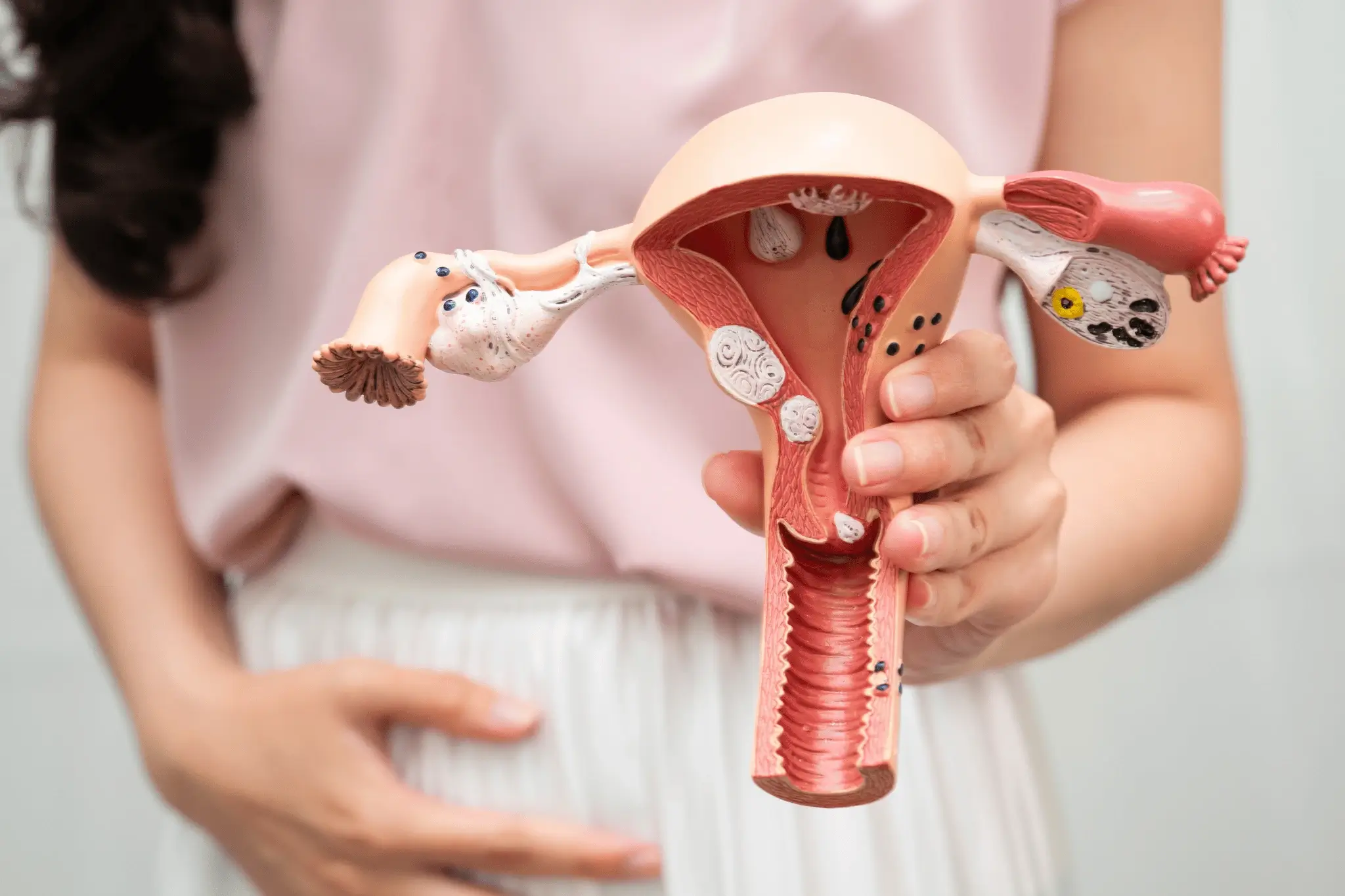Specialist care for uterine polyps and fertility health.

Uterine polyps (also known as endometrial polyps) are growths that form in the uterine cavity when the endometrial tissue overgrows. They attach to the endometrium by a thin stalk or broad base and are typically small (usually a few millimetres to several centimetres).
They’re reasonably common among women, particularly those going through or who have completed menopause, but they can also occur in women of reproductive age.
While they are usually benign, some uterine polyps can be cancerous or can turn into cancer. This is why it’s important to see a specialist at Create Fertility if you suspect you have one of these growths.

While many people with polyps don’t experience any symptoms, others do. Some of the more common symptoms of uterine polyps include:
While not everyone with polyps will experience fertility issues, they have been known to cause issues for some women.

Polyps may create a physical barrier within the uterus, which may interfere with an embryo’s ability to attach to the uterine wall.

Polyps can alter the uterine environment, making it unfavourable for an embryo to implant and develop.

Some polyps have been known to block the fallopian tubes, preventing sperm from travelling to an egg and/or the embryo from travelling to the uterus.
They may also cause hormonal imbalances or lead to inflammation, which may contribute to infertility. If present during pregnancy, polyps may increase the risk of miscarriage and other complications.
At Create Fertility, we use a variety of diagnostic tests to determine the presence of polyps in the lining of the uterus, including:
Once we’ve determined the size and location of your growths, we develop a personalised treatment plan to manage and/or remove them.
We generally recommend conservative management for small polyps (under 10mm). This typically includes:
In some cases, we may recommend uterine polyp removal via:

While the exact cause of polyps is unknown, it is believed that hormonal factors play a role. They are estrogen-sensitive, which means that they grow in response to high levels of estrogen in the body.
Your chances of developing uterine polyps can increase if you:
Only around 5% of uterine polyps are cancerous, and women who have not yet reached menopause or perimenopause are least at risk. Even so, all polyps that are removed are sent for testing, and your fertility specialist can also biopsy any that do not currently need to be removed to rule out endometrial cancer.
With Create Fertility, yes. Our specialists are experienced in managing both uterine polyps and fertility. If we discover that such growths may be impacting your ability to conceive or maintain a pregnancy, we aim to provide treatment in-house for continuity of care.
While uterine polyps can sometimes interfere with conception, treatment may make all the difference. At Create Fertility, our experienced specialists provide fertility-focused care in an effort to help you achieve the best possible outcome.
Contact us today to book a consultation and take the next step towards understanding your options.

Planning for a baby, or already trying? Learn what can influence your fertility.
Date: Wednesday 19 November 2025
Time: 7:00 PM AEDT
Location: Live via Microsoft Teams
Cost: Free